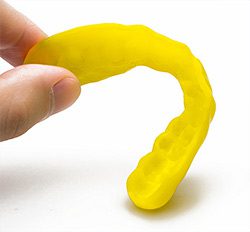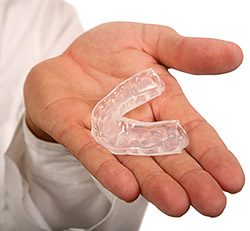Comprehensive Preventive Dentistry in Moreno Valley, CA

It is crucial for you and your loved ones to visit your general dentist on a regular basis. When you visit your dentist for routine examinations and cleanings, our dental team can catch early signs of decay or even prevent decay from ever occurring. When small oral health issues like tooth decay go too long without being treated, they can become more serious problems like gum disease. You can protect your health and the health of your family by visiting your family dentist regularly.

Regular exams are an important part of maintaining your oral health. During your regular exam, we will:
- Check for any problems that you may not see or feel
- Look for cavities or any other signs of tooth decay
- Inspect your teeth and gums for gingivitis and signs of periodontal disease
- Perform a thorough teeth cleaning
Your regular exam will take about 45 minutes. Each regular exam includes a detailed teeth cleaning, in which we will clean, polish, and rinse your teeth to remove any tartar and plaque that have built up on the tooth’s surface.
Visiting our office every six months gives you the chance to talk to the doctor about any questions you may have about your oral health. Regular exams are offered by appointment only, so please contact our practice today to schedule your next dental exam and teeth cleaning.
Mouthguards

Whether you wear braces or not, protecting your smile while playing sports is essential. Mouthguards help protect your teeth and gums from injury. If you participate in any kind of full-contact sport, the American Dental Association recommends that you wear a mouthguard. Choosing the right mouthguard is essential. There are three basic types of mouthguards: the pre-made mouthguard, the “boil-and-bite” fitted mouthguard, and a custom-made mouthguard from your dentist. When you choose a mouthguard, be sure to pick one that is tear-resistant, comfortable and well-fitted for your mouth, easy to keep clean, and does not prevent you from breathing properly. Your dentist can show you how to wear a mouthguard properly and how to choose the right mouthguard to protect your smile.
Nightguards

If you often wake up with jaw pain, earaches, or headaches, or if you find yourself clenching or grinding your teeth, you may have a common condition called “bruxism.” Many people do not even know that they grind their teeth, as it often occurs when one is sleeping. If not corrected, bruxism can lead to broken teeth, cracked teeth, or even tooth loss.
There is an easy, non-invasive treatment for bruxism: nightguards. Nightguards are an easy way to prevent the wear and damage that teeth-grinding causes over time. Custom-made by your dentist from soft material to fit your teeth, a nightguard is inserted over your top or bottom arch and prevents contact with the opposing teeth.

A child’s first visit to the dentist should be enjoyable. Children are not born with a natural fear of the dentist, but they can fear the unknown. Our office makes a special effort to use pleasant, non-frightening, simple words to describe each treatment. We want you and your child to feel at ease from the moment your family arrives at our office. The more you and your child know about the first visit, the better you will feel.
The American Academy of Pediatric Dentistry Recommends…
Children should visit the dentist by their first birthday. It is important that your child’s newly-erupted teeth (erupting at six and 12 months of age) receive proper dental care and benefit from proper oral hygiene habits right from the beginning.
When New Teeth Arrive
Your child’s first primary or baby teeth will begin to erupt between the ages of six and 12 months, and will continue to erupt until about age three. During this time, your child’s gums may feel tender and sore. To help alleviate this discomfort, we recommend that you soothe the gums by rubbing a clean finger or a cool, wet cloth across them. You may also choose to make use of a teething ring. When your child has finished teething, you can expect a total of 20 primary teeth.
Your child’s primary teeth are shed at various times throughout childhood. Permanent teeth begin erupting at age six, and continue until age 21. Adults have 28 permanent teeth (32, including wisdom teeth).
Adopting Healthy Oral Hygiene Habits
As your child’s teeth erupt, be sure to examine them every two weeks, looking for lines and discoloration that may be caused by decay. Remember that sugary foods and liquids can attack a new tooth, so take care that your child brushes after feeding or eating. We recommend brushing four times a day for optimal oral hygiene: after breakfast, after lunch, after dinner, and at bedtime.
Brushing can be fun, and your child should brush as soon as the first tooth arrives. Fluoridated toothpaste is recommended for all children starting at tooth eruption, regardless of caries risk. A smear (the size of a grain of rice) of toothpaste should be used up to age three. After the third birthday, a pea-sized amount may be used. We recommend dispensing toothpaste for young children and supervising and assist with brushing.
Flossing is also a part of good oral hygiene habits, and your doctor will discuss with you the right time to start flossing. If you notice signs of decay, contact your dentist immediately.
Preventing Tooth Decay with Regular Checkups
Tooth decay is caused by sugars left in your mouth that turn into an acid, which can break down your teeth. Children are at high risk for tooth decay for a simple reason: many children and adolescents do not practice regular, good oral hygiene habits. Proper brushing and flossing routines combined with regular dental visits help keep tooth decay away.
Your child should visit the dentist every six months for regular dental cleanings and checkups. We recommend fluoride treatments twice a year along with cleanings to keep teeth their strongest. Tooth sealants are also recommended because they “seal” the deep grooves in your child’s teeth, preventing decay from forming in these hard-to-reach areas. Sealants last for several years, but will be monitored at your child’s regular checkups.
